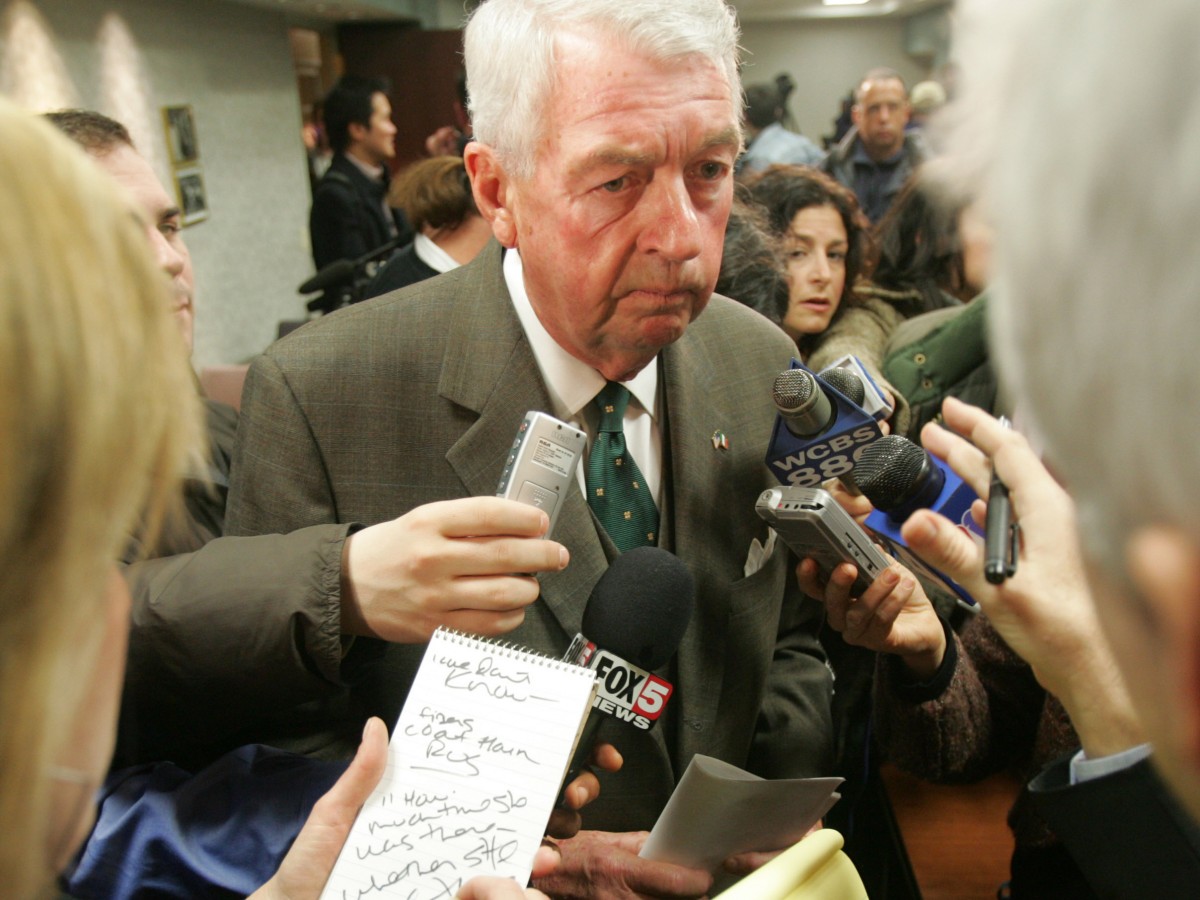
For more than two years, Jabbar Collins and his lawyer have pursued a multi-million dollar wrongful conviction lawsuit against New York City. They have unearthed what they claim is damning evidence of misconduct by prosecutors in the office of Brooklyn District Attorney Charles J. Hynes. They have obtained a sworn affidavit from a man who said he was forced by prosecutors to lie on the stand during Collins’ murder trial. They have named the individual prosecutors to hold them personally accountable.
But their aims have not been limited to establishing possible wrongdoing in the 1995 case that sent Collins to prison for 16 years. Instead, the lawsuit has included an additional, ambitious allegation: that Hynes, over many years, ran a district attorney’s office that overlooked, condoned and even rewarded misconduct by its prosecutors.
It is a bracing assertion. And it is one Hynes, in legal papers filed by the city, had sought to avoid answering in person. Lawyers for the city, arguing on Hynes’ behalf, said it was unnecessary or premature for Hynes to have to submit to questioning about the oversight of the men and women who worked for him. They asked a federal judge in Brooklyn to prevent Collins’ lawyer from taking testimony from him under oath.
On Wednesday, that judge, Federal Magistrate Judge Robert Levy, ruled that Hynes would not be spared. Hynes, based on the judge’s ruling, will have to sit for a deposition with Collins’ lawyer, Joel Rudin, in August. The judge also rejected the city’s bid to keep the deposition sealed. Hynes, who is running for a seventh term, is set to square off in a Democratic primary in September.
Outside the courtroom in Brooklyn, Collins said he was excited about the prospect of questioning Hynes.
“I think it’s finally vindication to really confront him and have him answer under oath why he permitted the horrendous misconduct in my case to occur and why he failed to do anything about it,” Collins said.
Lawyers for the city have rejected the claims that Hynes has been condoning misconduct. And they have portrayed Rudin’s efforts to question him under oath as a stunt to humiliate the district attorney.
“Regrettably, plaintiff’s fierce resistance to deposing other senior officials, together with his apparent proclivity to litigate this case in the press, betrays his motives: To embarrass the District Attorney by ambushing him with pointed questions from 50 separate cases that have been litigated in his office for the past 30 years or more, and then to play ‘gotcha’ when the DA understandably cannot recall specifics or details,” city lawyers said in court papers.
Rudin has alleged in the lawsuit that Hynes’ tacit policy of overlooking misconduct has led to repeated instances in which witnesses were secretly coerced into giving false testimony, exculpatory evidence was withheld, and coverups were mounted when defendants appealed. Rudin has asserted that he has found nearly 60 cases in which some or all of that kind of misconduct took place. In all those instances, Rudin asserts, no prosecutor involved was ever disciplined. Instead, he has claimed in court papers, Hynes has “praised and promoted them, thereby encouraging future constitutional violations to occur.”
Rudin has also argued that the pervasiveness of misconduct in Hynes’ office demonstrates that prosecutors are improperly trained to handle exculpatory evidence when they discover it. In fact, he claims that prosecutors “were permitted and/or encouraged to refrain from making any record of false or inconsistent out-of-court statements of prospective prosecution witnesses.” That way, they’d never have to turn such material over to the defense as the law requires, Rudin has claimed in the lawsuit.
All of this, Rudin has alleged, produced “overall deliberate indifference” to misconduct in Hynes’ office. And that attitude, he has said, helped explain the misconduct that Rudin has alleged against the lead prosecutor in Collins’ murder case decades ago. Rudin has accused that prosecutor, Michael Vecchione, of having engineered false testimony against Collins and then having overseen an effort to deny him access to records that might have freed him from prison. Collins was released after 16 years after he won a rare bid in federal court to have his case re-examined.
Vecchione has denied each and every one of Rudin’s claims, and lawyers for the city have continued to insist that Collins is guilty.
Vecchione was scheduled to be deposed by Rudin on Friday. However, Vecchione, who has been a principal character in CBS’ current series “Brooklyn DA,” had asked to have the deposition postponed because he was busy on a case. Judge Levy, however, ordered that Vecchione be deposed no later than June 24.
At the hearing, the city withdrew its argument that certain emails and other records turned over to Rudin and Collins by Hynes’ office be kept under court seal.
This article originally was published at ProPublica.


